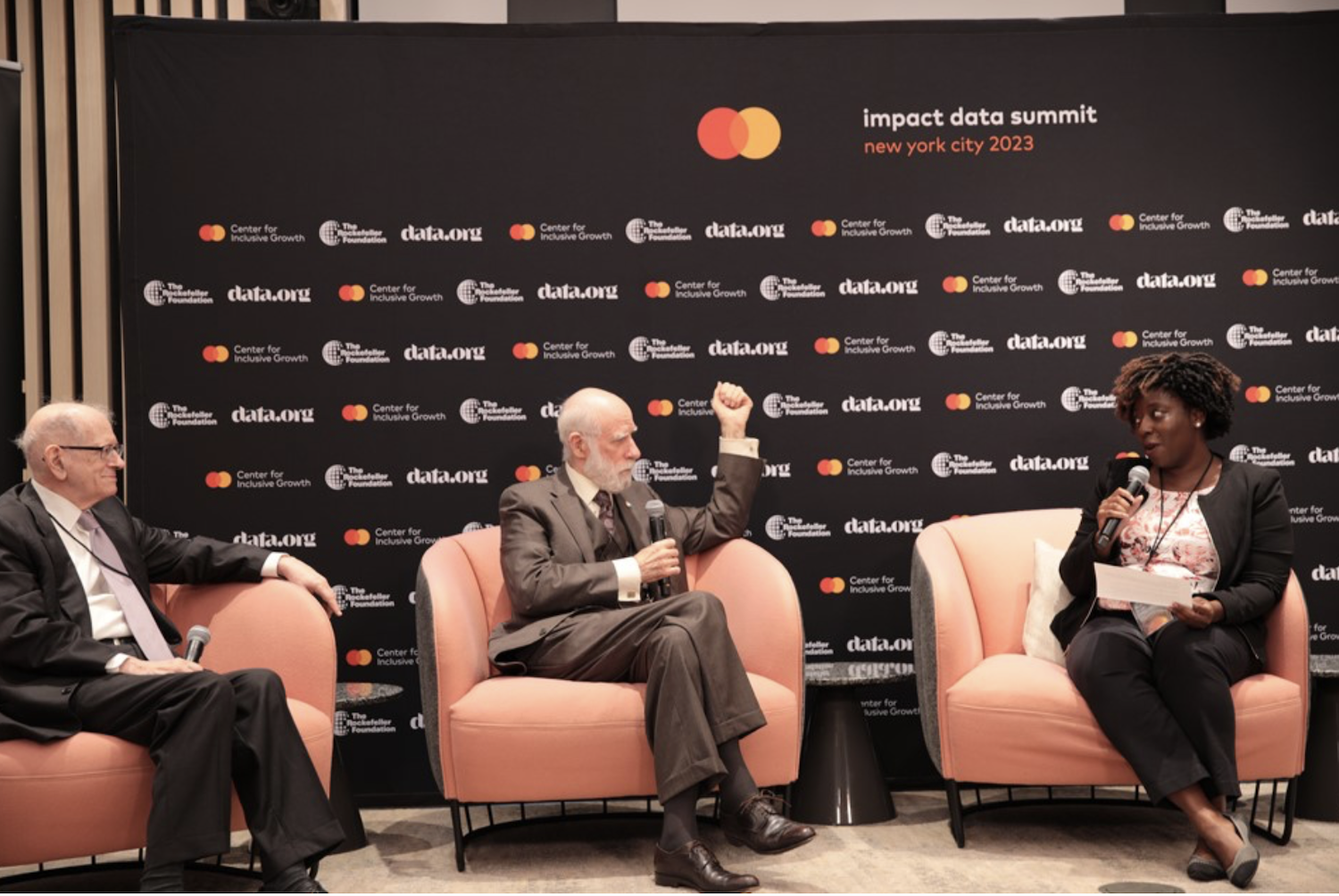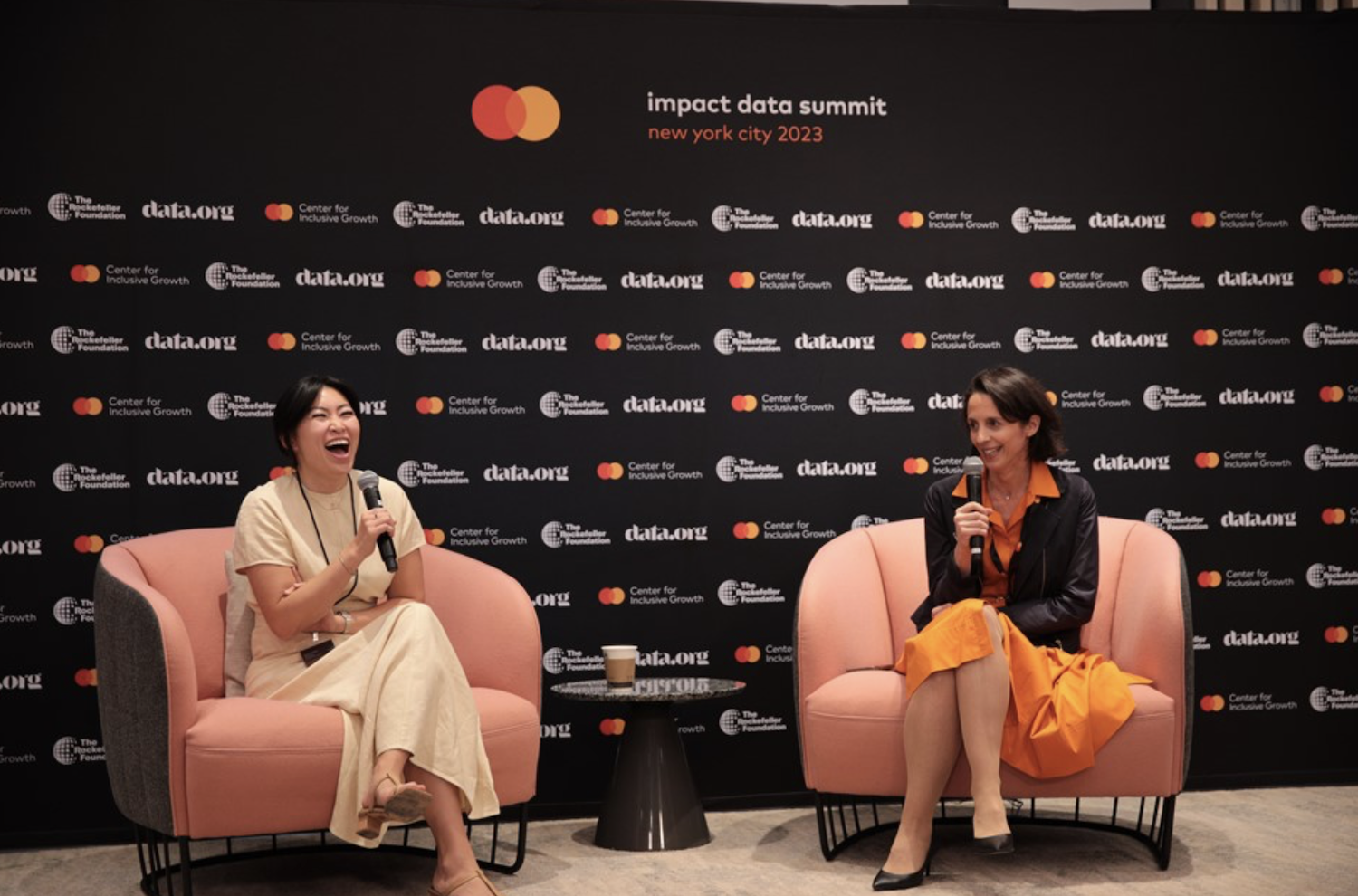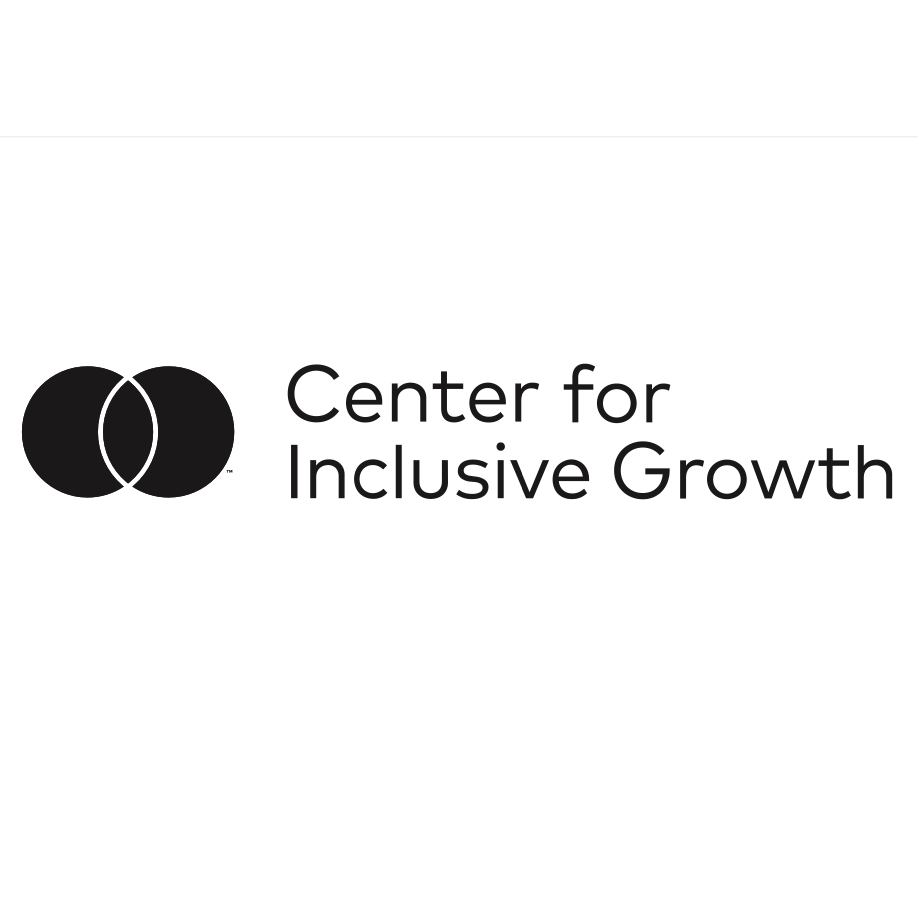
Amen Ra Mashariki, the director for data strategies for the Bezos Earth Fund, discusses technology and climate action at the Impact Data Summit in New York City last month. (Image credit: Jane Chu/Mastercard Center for Inclusive Growth)
By Caroline Morris
How can we use new technology and collective action to significantly improve the lives of all people and the health of our planet? That was the central question at the recent second annual Impact Data Summit, hosted by the Mastercard Center for Inclusive Growth with the Rockefeller Foundation and Data.org, for social impact leaders.
Coinciding with the United Nations General Assembly meeting and Climate Week NYC, conversations at the summit looked at the current realities of data, artificial intelligence and social impact, their impact on the U.N. Sustainable Development Goals, the role of cross-sector collaboration to drive that impact, what the future holds for transformative technology, and how to make sure that future is sustainable, equitable and accessible.
“As leaders in data, we need to move fast and now, not tomorrow,” said Shamina Singh, the president and founder of the Mastercard Center for Inclusive Growth. “Don’t leave here without a new partnership, without a new plan, without a new program … AI, I hope you will think, means actionable impact.”
Here are the key takeaways that will define the future of data and AI.
AI can help the world meet its sustainability goals, with humans' help
Data and artificial intelligence (AI) have the potential to help achieve the 17 Sustainable Development Goals laid out by the U.N. in 2015 to jump-start improvements including climate action, gender equality and inclusive economic growth. “Digital technologies can actually help accelerate 70 percent of the SDG targets, which is quite incredible,” said Doreen Bogdan-Martin, secretary-general of International Telecommunication Union, the U.N. specialized agency for information and communication technologies. “Only 15 percent of the targets are on track.”
Her faith is grounded in the game-changing nature of AI. AI can interpret vast amounts of data that no human could ever process. And it can distill that data into something immediately actionable — a necessity as we race against the clock to solve these human crises.
At the same time, human beings must constantly scrutinize AI to understand what it’s saying and how it can help generate outcomes that help society and leave no one behind. The wrong outputs and outcomes “will only get amplified very quickly in this environment,” said JoAnn Stonier, the Mastercard fellow specializing in responsible AI and data. “As long as we have the accuracy, we have the right data, and we’re doing all of our homework, I do think we’re going to start seeing some amazing solutions," she added.

Innovating with guardrails
The internet was not based on a single piece of technology. Instead, its enduring power emerged when Bob Kahn and Vint Cerf — known as the “fathers of the internet” — invented the protocols and architecture that allowed computers to form networks with one another. “As long as the internet adhered to the basic architecture, it could continue to evolve,” Kahn said. That approach allowed the internet to persist and expand far beyond its first small network of computers.
For AI to make an impact, it will need a similar set of protocols and architecture to create interoperability on an international level.
Regulation will have a role to play, too. AI should be serving the communities in which it exists, and these needs vary widely depending on location, so regulation cannot be one-size-fits-all; it requires context to be effective. “Technology is extremely difficult to regulate for a number of reasons. It evolves very quickly. What you don't want is a static piece of regulation that is built based solely on the way the technology works today,” said Dorothy Chou, head of policy and public engagement at Google DeepMind. “Historically, what we've seen is that good regulation actually creates public trust.”
Together, we go far
When the COVID-19 pandemic hit, Kenya's government wanted to make informed decisions for the health and safety of its citizens, explained Shikoh Gitau, founder and CEO of Qhala, a Nairobi-based consultancy that specializes in health informatics and the technology of social impact. But every health center had its own small and private data silo, so policymakers were forced to follow frameworks created on other continents, which ultimately proved poorly suited to the needs of Kenya.
Information that’s fragmented by unnecessary barriers or delayed by bureaucracy loses its ability to make an impact. The way to change these limitations is through collaboration between the public and private sectors. As Holly Krambeck, director of development data partnership for the World Bank, said, “As much as I hate to admit it, international corporations can’t solve everything, so we need global partners of all different types.”

Drawing in and opening up
As of now, 85 percent of all AI developers are men, Gabriela Ramos, assistant director-general for the social and human sciences at UNESCO, said at the summit. And, as several panelists noted, the majority of data fed into AI comes from North America. That means AI models are being trained with data from a tiny sliver of the global population. In fact, there is almost no data representing the Global South at all — and if there is, it’s outdated and in incompatible formats.
These gaps in data and AI — as well as a lack of diversity among the data scientists — ultimately hurt everyone. For example, failing to represent women and people of color can produce inaccurate AI outcomes. Those oversights result in leaving millions of investment dollars on the table — money that could help drive resilience, economic growth and the physical wellbeing of entire communities. “You get out of data what you put into it,” Ramos said.
However, getting the most out of data and AI requires unraveling deep-seated, systemic issues. “We have to be mindful about not reproducing inequalities from the analog world into the digital,” said Lamia Kamal-Chaoui, the director of the OECD Center for Entrepreneurship , SMEs, Regions and Cities. This means investing in data collection in underrepresented areas, improving accessibility to such data, drawing diverse voices into the development of AI, and listening to the local communities where new technology will be placed to best serve their unique needs.
When it comes to developing digital technology, one of the most significant measurements is how it contributes to the improvement of human life. There may be a divide between better data and better decisions that will make a real difference in people’s lives, said Gina Lucarelli, team leader of the U.N. Development Program’s Accelerator Labs. “The real gems are the moments where you bridge that gap and you actually see data that drives decision-making.”
Caroline Morris is a contributor to Mastercard Center for Inclusive Growth.
This story was previously published by Mastercard Center for Inclusive Growth and the 3BL newsroom.

The Mastercard Center for Inclusive Growth advances equitable and sustainable economic growth and financial inclusion around the world. The center leverages the company’s core assets and competencies, including data insights, expertise and technology, while administering the philanthropic Mastercard Impact Fund, to produce independent research, scale global programs and empower a community of thinkers, leaders and doers on the front lines of inclusive growth.














